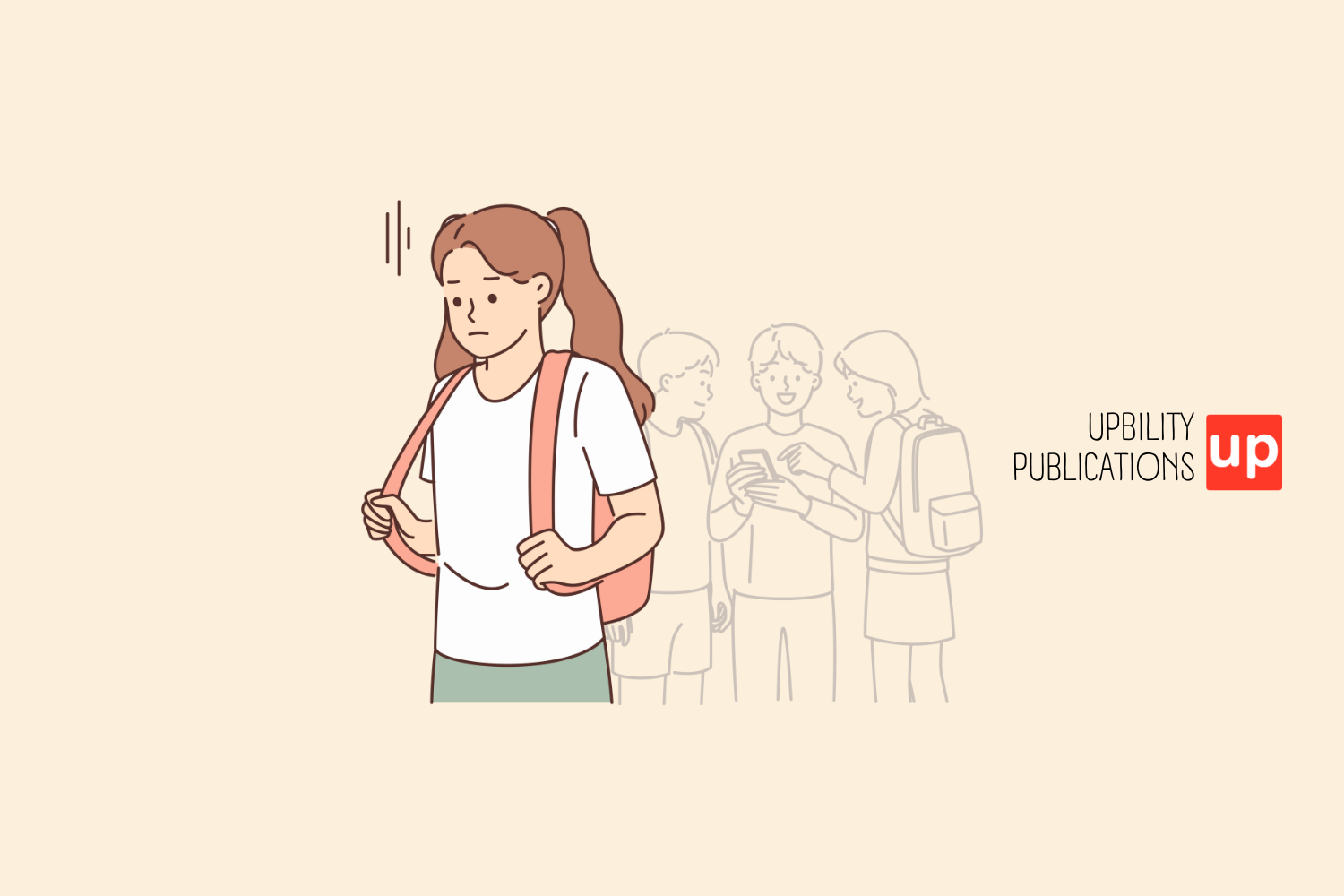Imagine walking into a room filled with familiar faces, yet no one acknowledges your presence. You try to engage, to connect, but are met with dismissive glances or, worse, complete indifference. This is social rejection - a universal human experience that can be deeply painful and emotionally scarring. But is it possible to navigate through this pain, to bounce back stronger and more resilient? The answer is a resounding yes.
Key Takeaways
-
Social rejection triggers profound emotional effects like loneliness, low self-esteem, jealousy, hurt, sadness, and can exacerbate conditions like depression and anxiety, reflecting both physical and social pain.
-
The cognitive bias known as rejection sensitivity, influenced by past traumas and childhood experiences, anticipates social rejection, adversely affecting emotional well-being and exacerbating mental health disorders.
-
Effective strategies for overcoming social rejection include practicing self-compassion, mindfulness, seeking social support, personal growth activities, and professional therapy to mitigate its negative impact on emotional and physical health.
The Impact of Social Rejection

Interpersonal rejection, or the deliberate exclusion of an individual from a social relationship or interaction, can be a deeply distressing experience. Factors contributing to this rejection are complex and varied, encompassing aspects of personality, perceptions, status characteristics, and situational factors. When such rejection is prolonged or consistent, it becomes a significant concern in social psychology, especially for individuals who are highly sensitive to rejection.
Social rejection can trigger a myriad of negative emotional effects, such as:
-
feelings of loneliness
-
low self-esteem
-
jealousy
-
hurt
-
sadness
Such emotional turmoil can inevitably lead to more severe conditions like depression and anxiety, with the emotional impact of rejection often likened to both physical and social pain. A study in the field of personality and social psychology has further linked daily envy and social rejection, intensifying the emotional consequences of social rejection.
Although the emotional impact of social rejection can be overwhelming, it’s crucial to understand that everyone experiences it at some point. The rejection doesn’t define your worth or value; instead, it’s typically a byproduct of intricate social dynamics.
Emotional Consequences
The emotional aftermath of social rejection can be immediate and intense, especially within a peer group. Feelings of hurt, jealousy, loneliness, and sadness can quickly set in, and if left unchecked, these feelings can escalate to more severe conditions such as depression and anxiety.
So, why do we experience such hurt feelings following social rejections? These feelings arise from:
-
unmet expectations and needs
-
disappointment from the inability to establish a harmonious relationship
-
a lack of emotional closeness with the individual who has rejected them.
There is a significant correlation between social rejection and depression. Individuals who experience social rejection are at a higher risk of developing depressive symptoms, and those already experiencing depression may anticipate further social rejection, leading to a cycle of negative reinforcement. Beyond immediate emotional distress, social rejection can result in enduring psychological effects including:
-
loneliness
-
diminished self-esteem
-
heightened aggression
-
poor impulse control
These effects can elevate the risk of depression.
Recognizing these emotional outcomes paves the way for healing. Embrace these feelings, don’t suppress or overlook them.
Physical Health Implications
The effects of social rejection are not solely emotional. They can also manifest physically, impacting our health in various ways. These physical outcomes can include poorer sleep quality, a weakened immune system, and physical pain during brief episodes of rejection. It’s a striking testament to the interconnectedness of our physical and emotional health.
Typical stress-related illnesses caused by social rejection include:
-
Cardiovascular disease
-
Anxiety
-
Depression
-
Loneliness
The correlation between social rejection and these physiological responses is significant, with research revealing that social rejection can heighten cardiovascular responses to stress. Furthermore, social rejection can worsen existing health conditions by increasing levels of stress, anxiety, depressive symptoms, and deteriorating overall physical and mental health.
These physical health effects underline the necessity of confronting and surmounting rejection. It’s not just about emotional welfare, but also about preserving peak physical health.
Self-Esteem and Identity
The experience of social rejection can deal a significant blow to an individual’s self-esteem and personal identity, resulting in negative self-beliefs and a reduced sense of self-worth. This can manifest in various ways, including being deeply affected by criticism or disapproval, distancing oneself from activities and individuals, and avoiding circumstances that may involve judgment.
Social rejection can result in the formation of negative self-beliefs through the manifestation of internalizing symptoms like depression and externalizing symptoms such as aggression. This impact on one’s sense of self-worth can be observed through the development of low self-esteem, hurt feelings, and a tendency to question one’s value.
Such lasting effects on a person’s self-identity, like increased negativity, loss of self, and harm to social relationships, further highlight the need to confront and conquer social rejection.
The Roots of Rejection Sensitivity

As we dive deeper into the complexities of social rejection, it’s crucial to explore the concept of rejection sensitivity. This cognitive bias, characterized by an anticipation of rejection, often stems from adverse social interactions and can have a detrimental impact on emotional well-being. It’s development is commonly linked to prior experiences of rejection, particularly during earlier stages of life, and is frequently correlated with various mental health disorders.
Childhood trauma can contribute to rejection sensitivity by negatively impacting social support, affecting recovery from trauma, and facilitating conditions like PTSD and BPD. Furthermore, the impact of parenting style on the development of rejection sensitivity is significant, as it shapes children’s attitudes and behaviors in their interactions and expectations of rejection.
Personality traits also play a role, with rejection sensitive dysphoria (RSD) distinguished by intense emotional distress stemming from perceived failure or rejection. Past experiences of social rejection have the potential to significantly impact an individual’s sensitivity to future rejections by heightening their fear and expectation of rejection, leading to adverse effects on their emotional adjustment and mental health.
Childhood Influences
Childhood experiences significantly shape our reactions to and interpretations of social situations in adulthood. The lack of attachment in childhood can have a substantial influence on adult relationships. Infants with insecure attachment often grow into adults who struggle with understanding their own emotions and the feelings of others, limiting their ability to build or maintain stable relationships.
The presence of rejecting parents can increase a child’s sensitivity to peer rejection, leading to heightened anxiety and anger due to their expectations of rejection by others. Negative childhood experiences like rejection, victimization, and exclusion are associated with heightened rejection sensitivity. Moreover, childhood neglect or abuse can contribute to future social rejection by impacting the capacity to experience pleasure, developing intense social pain, and elevating the likelihood of internalizing distress and substance abuse.
Comprehending these childhood influences is fundamental in dealing with and recovering from rejection sensitivity, as well as understanding how one might develop rejection sensitivity.
Personality Traits
Our personality traits significantly influence how we perceive and react to social rejection. Some common traits include:
-
Heightened emotional sensitivity to criticism or rejection
-
Intense emotional distress in reaction to perceived failure or rejection
-
A tendency to anticipate and interpret social rejection with anxiety
These traits are frequently observed in individuals with depression, social anxiety, and borderline personality disorder.
Introversion can be linked to a heightened fear of rejection, potentially resulting in social isolation and a withdrawn lifestyle for certain individuals. Low self-esteem significantly amplifies emotional responses and increases a person’s sensitivity to rejection, thus contributing to intense negative reactions to social rejection.
Recognizing these personality traits can assist in better managing reactions to social rejection and in forming effective coping strategies.
Past Rejections
Our past experiences significantly shape our present and future reactions. Past experiences of rejection can result in feelings of low self-worth and self-doubt, as well as more aggressive responses and reduced helping behavior. This can lead to a heightened sensitivity to rejection, with emotional pain peaking at specific intensities of social rejection experiences.
Previous rejections can indeed lead to the development of social anxiety or avoidance, as individuals sensitive to rejection may struggle to engage in affiliative behavior following rejection. These past experiences can have a substantial impact on:
-
self-perception
-
self-esteem
-
sense of self-worth
-
self-awareness
-
an individual’s identity
This can result in a reduced sense of self-worth and heightened self-awareness, which may ultimately alter an individual’s identity.
Acknowledging the effect of past rejections is a crucial step in healing and overcoming the dread of future rejections.
Forms of Social Rejection

Social rejection is not a one-size-fits-all experience. It can take various forms, each with its unique challenges and implications. Job or career rejection encompasses the situation where an individual’s response to a job description and the presentation of their qualifications do not align with the employer’s expectations. Individuals experiencing peer rejection may demonstrate shy, withdrawn, or anxious behavior, and may exhibit less sociable or more disruptive and aggressive tendencies.
These forms of rejection, whether in our professional lives or our social circles, can have profound effects on our mental and emotional well-being. Understanding these different forms can help individuals better navigate their experiences and find effective coping strategies.
Peer Rejection
Peer rejection can stem from a variety of factors, including individual differences, financial disparities, or differences of values and opinions in life. The psychological consequences of peer rejection can be severe, leading to heightened emotional response, mental health problems, higher levels of anxiety, and depressive symptoms.
The impact of peer rejection doesn’t stop at psychological distress. It can also impact:
-
Academic performance, resulting in lower grades, decreased academic motivation, reduced school engagement
-
Increased risk of mental health problems
-
Adolescents, in particular, who have high rejection sensitivity, are more prone to experiencing angry emotions and engaging in retaliatory behavior.
Identifying and tackling peer rejection within peer groups is crucial for mental health and overall wellness.
Romantic Rejection
Romantic rejection can be particularly devastating, often leading to intense emotional reactions such as:
-
feelings of inadequacy
-
unworthiness
-
protest
-
passion
-
rage
-
despair
-
the potential for personal growth
This type of rejection can lead to feelings of inadequacy and self-doubt due to its contribution to a sense of unworthiness, often resulting in self-blame, self-criticism, and self-doubts.
The experience of romantic rejection can have a significant impact on future romantic pursuits and relationships. It may result in changes in ideal standards, self-perceived mate value, and ideal flexibility. Furthermore, rejections can have a lasting effect and potentially lead to challenges in future relationships.
Comprehending the emotional impact of romantic rejection is pivotal to healing and progressing.
Job or Career Rejection
Job or career rejection is another form of social rejection that can have a significant impact on an individual’s psychological well-being and financial stability. Experiencing job rejections can lead to a range of negative emotions, including a decline in self-esteem and increased self-doubt, which may feel overwhelming.
The impact of job rejection on a person’s livelihood can be significant. It can result in the loss of a stable source of income and a sense of security, which may have long-term implications for their financial well-being. Despite the prevalence of job or career rejection during a job search, it can still be a devastating experience.
Acknowledging the effect of job or career rejection is crucial in devising effective coping strategies and sustaining resilience amid future rejections.
Coping Strategies for Overcoming Social Rejection

Though the effects of social rejection are multifarious and can be deeply upsetting, it’s important to recall that potent coping strategies exist. These strategies can help individuals navigate through the pain of social rejection and emerge stronger and more resilient. Techniques such as self-compassion practices can improve resilience to social rejection by utilizing methods such as journaling to process thoughts and feelings and acknowledging personal achievements to boost self-esteem and motivation.
Seeking social support is also essential. It fosters a sense of belonging and aids in mitigating feelings of loneliness and isolation, which are commonly encountered following social rejection. In addition, personal growth is of great significance in coping with social rejection as it helps in nurturing a sense of self-worth and achievement.
Through the practice of self-compassion, pursuit of social support, and establishment of personal growth objectives, individuals can commence the rebuilding of their self-esteem and traverse the complexities of social rejection with resilience and poise.
Self-Compassion and Mindfulness
Practicing self-compassion and mindfulness can be a powerful tool in managing the emotional fallout of social rejection. The concept of self-compassion entails treating oneself with care and understanding during difficult circumstances, similar to how one would treat a close friend. Self-compassion practices can improve resilience to social rejection by providing emotional stability during challenging periods, while mindfulness can aid in decreasing distress and effectively managing the emotions linked to social rejection.
There are various ways to cultivate self-compassion and mindfulness, including:
-
Engaging in self-compassion exercises and worksheets
-
Taking self-compassion breaks
-
Writing self-compassion letters
-
Releasing negativity
-
Addressing the inner critic
-
Avoiding ‘shoulds’
-
Engaging in loving-kindness practices
These practices can help individuals process and manage their emotions, promoting emotional resilience and well-being.
Cultivating a routine of self-compassion and mindfulness enables human beings to handle the emotional impacts of social rejection more efficiently and nurture a healthier relationship with themselves.
Social Support Networks
Building and maintaining strong social support networks is another effective strategy for overcoming social rejection. Social support networks play a significant role in lessening the emotional impact of social rejection by fostering a sense of belonging and reducing feelings of loneliness and isolation.
Various types of social support networks can address feelings of loneliness and isolation, including emotional support, instrumental support, and informational support. Online social networks also contribute to enhancing social support, positively correlating with health outcomes, reinforcing health behavior changes, reducing symptoms of depression, lowering feelings of loneliness, and providing access to both tangible resources and emotional support.
Creating a robust and reliable social support network provides individuals with comfort and fortitude in their relationships, assisting them in overcoming the challenges of social rejection.
Personal Growth and Goal Setting
Setting realistic and achievable personal growth goals after experiencing social rejection can foster a sense of accomplishment and self-worth. It can also help in:
-
Reevaluating objectives
-
Discovering new avenues for personal development
-
Restoring self-confidence
-
Concentrating on positive attributes
-
Cultivating resilience and mental fortitude
-
Gaining fresh knowledge and skills
Engaging in personal growth and goal setting can be a powerful tool for rebuilding self-esteem and moving forward after social rejection.
Personal growth and goal setting can contribute to the process of rebuilding self-esteem after social rejection by establishing realistic goals, accomplishing incremental successes, confronting pessimistic thoughts, and substituting them with constructive affirmations. Some examples of personal growth goals that can be set to overcome social rejection include setting wellbeing objectives such as improving mental, physical, spiritual, and social health; initiatives like managing stress and resolving conflict; and skills development in areas like time management and active listening.
Establishing personal growth objectives allows individuals to regain control over their personal story, nurture a positive self-image, and tread the recovery path with restored confidence and resilience.
Seeking Professional Help

Sometimes, the journey to recovery from social rejection requires professional guidance. Seeking professional help, such as therapy or online counseling, can provide valuable guidance and support in overcoming the challenges associated with social rejection. Therapeutic options for addressing social rejection encompass:
-
Exploring and resolving emotions
-
Enhancing self-esteem
-
Schema therapy
-
Dialectical behavior therapy
-
Cognitive behavioral therapy (CBT) or Rational Emotive Behavior Therapy (REBT) to challenge negative thoughts.
A mental health professional can offer valuable guidance in navigating the emotional impact of social rejection. Furthermore, online counseling provides individuals with the chance to:
-
Collaborate with a qualified professional
-
Receive assistance in navigating the intricacies of emotions and thoughts
-
Aid in the process of rebuilding self-esteem
Seeking professional help provides individuals with a rich array of resources and expertise to guide them through the process of overcoming social rejection and rebuilding their self-esteem.
Therapy Options
There are various therapy options available for addressing the underlying causes of rejection sensitivity and developing effective coping strategies. Cognitive-behavioral therapy (CBT) plays a crucial role in supporting individuals with rejection sensitivity by guiding them in recognizing and confronting negative thought patterns and beliefs that fuel their vulnerability to feelings of rejection, promoting the development of more constructive and rational cognitive processes.
Interpersonal therapy (IPT) can benefit individuals who have experienced social rejection by focusing on improving their social skills and relationships. Other therapeutic modalities for addressing rejection sensitivity involve:
-
Cultivating self-compassion
-
Utilizing positive affirmations
-
Participating in psychotherapy and talk therapy to enhance individual resilience and challenge negative thought patterns.
Engaging in therapy grants individuals insights into their thinking and behavior patterns, nurtures self-compassion, and ultimately restores self-esteem.
Online Counseling
Online counseling offers a convenient and accessible option for individuals seeking professional help in navigating the challenges of social rejection. Referred to as online therapy or teletherapy, these services are delivered via the internet, encompassing a range of communication methods, including video calls, phone calls, or messaging, offering the flexibility of accessing therapy from any location and at any time.
Online counseling has demonstrated its effectiveness in alleviating symptoms such as psychopathological stresses, psychological distress, and depression. Furthermore, engaging in an online instant messaging conversation with a stranger has been shown to enhance self-esteem and mood following experiences of social exclusion.
Online counseling provides:
-
Convenience
-
An effective platform for individuals to explore their thoughts, feelings, and experiences related to social rejection
-
A safe space for healing and growth
Summary
Navigating the pain of social rejection is a journey of understanding and healing, of resilience and recovery. Throughout this article, we’ve explored the multifaceted impacts of social rejection, delving into its emotional, physical, and psychological effects. We’ve examined the roots of rejection sensitivity, including childhood influences, personality traits, and past rejections. We’ve also discussed the various forms of social rejection, from peer and romantic rejection to job or career rejection.
Overcoming social rejection involves a combination of self-compassion, social support, personal growth, and professional help. Whether through therapy or online counseling, acknowledging our feelings and experiences allows us to confront our fears, rebuild our self-esteem, and navigate our path to recovery. Remember, it’s not the rejection that defines us, but how we rise from it.
Frequently Asked Questions
What does social rejection do to a person?
Social rejection can lead to adverse psychological consequences such as loneliness, low self-esteem, aggression, and depression. It can also heighten sensitivity to future rejection and lead to feelings of insecurity, affecting overall well-being.
How do you recover from social rejection?
Recovering from social rejection involves acknowledging your inherent worth and surrounding yourself with supportive people who accept and love you. It's important to allow yourself to feel and process the emotions that come with rejection, while also practicing self-love and self-care.
What are the signs of being a social reject?
If you're not being included in group activities, feeling ignored or excluded, and sensing that others are avoiding you, these could be signs of feeling like a social reject.
How do you face social rejection?
When facing social rejection, expect it, prepare for the worst, and remind yourself that it's okay. Remember that it happens to everyone and validate your feelings, but also look for the learning opportunity and grow from the experience.
What are some of the emotional consequences of social rejection?
Experiencing social rejection can lead to feelings of loneliness, low self-esteem, jealousy, hurt, and sadness, and may also contribute to conditions like depression and anxiety.
Original content from the Upbility writing team. Reproduction of this article, in whole or in part, without credit to the publisher is prohibited.









